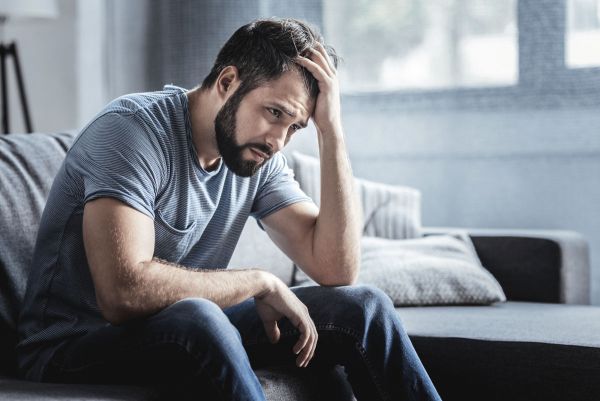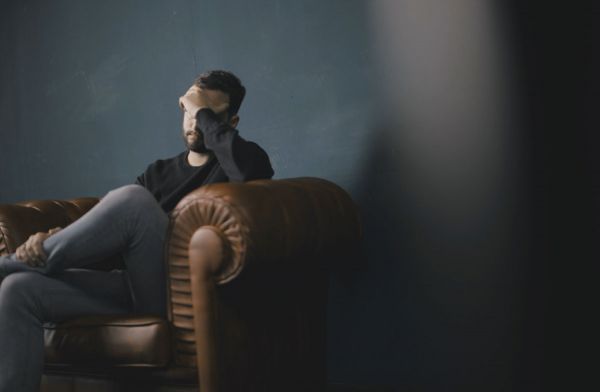 Major depression is one of the most common disorders in the United States, affecting some 17.3 million people each year, or 7.3% of all U.S. adults. Major depression is defined as a period of at least two weeks, during which a person experiences a depressed mood, loss of interest in former activities and pleasures, and symptoms as defined by the DSM-V. In 63% of cases, those periods of depression, which can last for years, include severe impairment to the individual’s ability to work, live, or take care of themselves or others.
Major depression is one of the most common disorders in the United States, affecting some 17.3 million people each year, or 7.3% of all U.S. adults. Major depression is defined as a period of at least two weeks, during which a person experiences a depressed mood, loss of interest in former activities and pleasures, and symptoms as defined by the DSM-V. In 63% of cases, those periods of depression, which can last for years, include severe impairment to the individual’s ability to work, live, or take care of themselves or others.
If you or a loved one is struggling, it’s crucial to get help. An estimated 35% of all persons with depression avoid seeking out support for mental illnesses because of complex factors such as social stigma, but support can help you to recover from the underlying causes of depression, build new patterns and habits, and recover in such a way as to help prevent future depressive episodes. The Gooden Wellness Center is a mental health treatment facility offering residential care and treatment for major and other types of clinical depression. If you’d like support, contact us at 800-931-9884 for a free consultation.
The DSM V and Depression
The DSM V (The American Diagnostic and Statistical Manual of Mental Disorders, 5th Edition) is a diagnostic manual used to diagnose mental illness in the United States. It recognizes 8 different types of depression, including:
- Disruptive Mood Dysregulation Disorder
- Major Depressive Disorder
- Persistent Depressive Disorder (Previously, dysthymia)
- Premenstrual dysphoric disorder
- Substance/medication-induced depressive disorder
- Depressive disorder related to a medical condition (Such as thyroid disorder, postpartum, SAD, etc.)
- Unspecified depressive disorder
These forms of depression allow medical professionals to recognize and categorize the causes and underlying conditions to improve treatment. This means that depression cannot be properly diagnosed without an intensive review of your personal and medical history, because factors such as genetics, health conditions, mental health conditions, drug or alcohol abuse, a pregnancy, or event the time of year could influence your diagnosis. However, most forms of depression have similar symptoms, which you can assess, without the nuance of type-specific symptoms.
10 Common Symptoms of Depression
The DSM 5 outlines the 10 most common symptoms of depression. These symptoms may be indicated by self-report or third-party observation and should be taken to your doctor.
 Persistent depression throughout the day, as demonstrated by subjective report and third-party observation. If someone is frequently feeling “Down” or “depressed”, something is likely wrong.
Persistent depression throughout the day, as demonstrated by subjective report and third-party observation. If someone is frequently feeling “Down” or “depressed”, something is likely wrong.- Consistent and marked reduced interest and pleasure in activities for all or most of the day. If someone is no longer interested in activities, social or otherwise, that previously brought pleasure, they likely have problems.
- Significant changes to body weight (+/- 5%) in a month. Significant changes in quantity or type of food eaten. This is especially notable if an individual is not purposely attempting to put on or gain weight at a rapid rate.
- Changes in sleeping patterns, such as daily insomnia or hypersomnia. Excessive sleeping is more common in men, but both are common in all genders and in all ages.
- Psychomotor agitation or retardation, such as reduced hand-eye coordination, reduced motor controls, etc. These changes should be externally noticeable, which may require a report from someone close to the affected person.
- Lethargy or loss of energy, especially as a personality change. Major changes in energy levels are almost always indicative of something being wrong. See a doctor if you are experiencing problems with constant fatigue or lethargy.
- Feeling worthless or excessive or inappropriate guilt. This may feel “deserved” by the individual but is not.
- Reduced concentration and decision-making ability, noticeable to an external observer.
- Reduced short-term memory, with impacts to long-term memory.
- Thoughts of death, suicidal ideation, or suicide attempt or planning. These must be recurrent. However, a single suicidal episode still warrants treatment, even if the individual is not diagnosed with depression. If you or a loved one is or has felt suicidal, seeking help may be life-saving.
These symptoms can vary heavily from person to person. In men and young adults, depression also often includes symptoms such as irritability.

Diagnosing Major Depression
To achieve a clinical diagnosis, you must have experienced or shown at least 5 of these symptoms for a period of 2 or more weeks.
However, if you don’t have at least 5, you may have another mental health problem, and are likely struggling. This means that therapy and treatment may still be advisable and will likely help you or your loved one to regain control of your life.
Diagnosing depression involves a multi-step process of evaluating symptoms, assessing your current and past mental and physical health, and determining the most likely cause.
Here, assessments will review your previous personal, family, and medical history of:
- drug and alcohol abuse
- schizoaffective disorders
- manic or hypomanic episodes
- comorbidities such as anxiety, obesity and diabetes,
- Specifiers such as psychosis or suicidality
- vulnerability factors
In any case where you or a loved one is struggling with major symptoms of depression, suicidal ideation, or unexplained changes in behavior, personality, social, or eating and sleeping habits, contact your doctor. Your general practitioner will be able to recommend you for a formal diagnosis, which you can use to both rule out the chances of symptoms being related to a physical disorder and to ensure you can seek out appropriate mental health treatment.
The Gooden Wellness Center is a mental health treatment facility offering evidence-based treatment programs, including dialectical behavioral therapy, cognitive behavioral therapy, acceptance and commitment therapy, family therapy, and a full range of complementary therapies designed to tackle every part of depression and its causes. We employ licensed therapists and counselors, who are fully qualified to assess your mental illness. However, we cannot offer a clinical diagnosis, which must be provided by your doctor, a psychiatrist, or a psychologist. In most cases, you need a clinical diagnosis to receive reimbursement from your insurance.
Most adults will experience at least one major depressive episode at some point in their lives. For many of us, those episodes are relatively short-lived, but with dramatic effects on our lives and health during that period. Millions of us also suffer from chronic depression, which is recurrent and typically lasts for years, or the individual’s entire life. While major depressive disorder can be treated with the intent to prevent a relapse into depression, chronic depression is treated with the intent to mitigate the impact on the individual’s life and to give them the tools to live a happy and healthy life around it.
At the Gooden Wellness Center, we offer support for both, with a holistic program designed to treat every aspect affecting depression. Contact us today at 800-931-9884 for a free assessment, or a free tour of our residential mental wellness facility in Pasadena.
 Persistent depression throughout the day, as demonstrated by subjective report and third-party observation. If someone is frequently feeling “Down” or “depressed”, something is likely wrong.
Persistent depression throughout the day, as demonstrated by subjective report and third-party observation. If someone is frequently feeling “Down” or “depressed”, something is likely wrong.